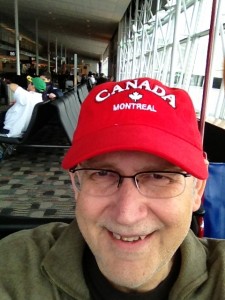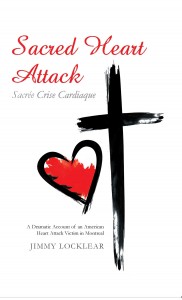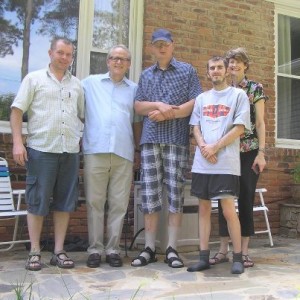I don’t know if you have ever taken a private silent retreat for a day or a week or so, but I have done it from time to time. While our hearts long to slow down, rest and reflect, we rarely feel we can afford to do nothing for several hours or a whole day. The last time I took the time was about nine months ago. I was distraught and tired and stressed. So, I shared with my wife that I needed to take a 24-hour retreat. She supported the idea and knew that I was feeling overwhelmed. So, here are my notes. Perhaps it will fuel your decision to spend some time in solitude.
Monday afternoon 5:25 PM – Reading Nehemiah 1:1-2:10
- Hears the news of Jerusalem
- Weeps, mourns the loss
- Prays – confesses sin, reminded God of his promises, asks for favor with king
- Goes about his work…
- Four months later the king notices Nehemiah being sad and asks him what’s wrong.
- Nehemiah tells his story and asks for help
- King and queen confer and say sure, they’ll be glad to help
- Nehemiah takes the letters of support the king & queen give him and the army the king provided and went toward Jerusalem
- Arrives in Jerusalem; it’s January.
- After being in town for three days he goes to inspect the walls
- Opposition to him begins immediately from foreigners and outsiders
I’m immediately struck that the Lord called a eunuch, a man who worked for the king/government to restore the holy and symbolic city of Judah. Not a warrior, not a priest, but a man of compassion and planning. Could it be that the Lord would want to re-build Intown?
6:00 PM – Listening to Henri Nouwen’s book: The Way of the Heart (it’s only about 2 hours long available on Audible.com)
4th and 5th Century in Egyptian desert – the Sayings of the Desert Fathers provide a consistent theme with today and how our hearts have not changed. They dealt with the same challenges and temptations that we deal with today.
We are busy people, we go through our days doing the “should” and “oughts” as if they were the Gospel of our Lord Jesus Christ.
The compulsive minister – our society is ship wrecked and we should be running for our lives.
Have been so seduced by the powers of our dark world that we have become blind to our fatal state?
Meetings to attend, visits to make and many services to lead. We are motivated to come to church, give money, be happy and be rewarded by rewards that are rewarded to busy people. Why is this so?
What is my identity?
There is anger below the surface.
Solitude is the furnace of transformation… the place of conversion. The old self dies and the new self emerges in solitude.
Transforming solitude.
- get rid of scaffolding
- it is a concrete place
- We have to die to our neighbors – to stop judging them, to stop measuring our success in comparison to them.
- Thus, to become free to become compassionate
- Compassion and judgement cannot co-exist
Three things are concerning me:
- My church
- Friend 1
- Friend 2
Silence – Psalm 39:1 – St. Benidict
I said, “I will watch my ways
and keep my tongue from sin;
I will put a muzzle on my mouth
while in the presence of the wicked.”
Words can get in the way.
Silence guards the inner life with God.
Preaching: read the words of Scripture repeatedly and allow for silence with a few comments.
Holy Spirit is the divine counselour.
Solitude and silence can never be separated from the call to unceasing prayer.
As soon as you decide that you are going to live in peace, evil comes to attack you with boredom, distraction, evil thoughts, sickness, weakness, etc.
Prayer of the mind –
- Most ministers pray very little or not at all
- One of the attacks of evil is making us think that prayer is primarily of the mind – “speaking with God” or thinking about God, talking to God.
- Thinking about God is not a spontaneous event while thinking about the pressing matters of life comes quite naturally – ain’t that a bitch?
- This intellectual idea of prayer has evolved through a view of the world as being mastered through the intellect
- Real prayer comes from the heart
Nouwen said, “To pray is to descend with the mind into the heart and there to stand in the face of the Lord ever present, all seeing within you.”
Prayer is standing in the presence of God with the mind in the heart. Totally one. Heart speaks to heart.
Stretch out your hand, “Lord as you will and as you know, have mercy. Lord, help.”
If we train our hearts to a point of praying, we will pray more.
“Lord Jesus Christ, have mercy on me.”
As my prayer passes from my lips to my heart, the heart continues to pray in me.
Solitude, Silence & Prayer.
8:50 PM
Reflections:
- Don’t judge others
- Have compassion
- Be silent more
- Pray unceasingly
Church – stay?
Friend 1 in relational challenge – love and listen
Friend 2 with ministry challenge – support – how?
6/19/2012 – 9:15 AM
Read a blog by John Eldredge on Practicing the Presence of Jesus through worship, personal worship. Good stuff!
Remembering Jed’s birth brings me to tears. He’s 22 today and what a kid!
(Song lyrics) “If I give it all to you, will you take it all?”
When I was a very young follower of Jesus, I would sit on the wooden floor in the bedroom I shared with two brothers. I would station myself at the end of the dresser near our closet and read the Bible and pray. Some 45+ years later God is still present as I follow the pattern of reading, praying and listening. Several years ago I asked the Lord to take me back or to restore that sense of His presence and He’s done that through years of pruning by his hand of love.
Thank you, Lord.
Shane Claiborne – The Irresistible Revolution
Bob Sorge – Unrelenting Prayer
Toward a Vision of the Local Church (book I should write)
Friendship and community.
June 2006, American Sociological Review, Duke University and University of Arizona study: 1 in 4 Americans have no one to confide in.
The new social detachment appears to have come as a result of our hardwired American pursuit of what we want.
Where the church holds the trump card is in human contact.
House churches – would this be a place for us, Lord?
Intown: Praying for a leader to emerge to re-build my church. Like Nehemiah. A Team Effort.
Personal messages to me: this is a time of pruning and receiving.
Selah.


